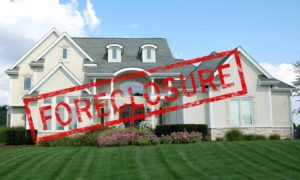 Memphis Foreclosure Laws: Frequently Asked Questions
Memphis Foreclosure Laws: Frequently Asked Questions
If you’re struggling to pay your mortgage in Memphis, you need to understand Memphis foreclosure laws and how they affect you. Here are some of the most common questions we get about foreclosure in Memphis, including how to stop it in its tracks.
What is a foreclosure?
Foreclosure is a process that starts when someone doesn’t or can’t make their regular mortgage payments. The banks use your home as collateral on your mortgage loan, so when you can’t pay, the lender has right to take back the house. Most of the time, this means the bank repossesses the house and sells it or auctions it off to someone else.
What is a notice of default?
Memphis foreclosure laws say banks first have to send you a notice of default and right to cure. This letter tells you you’ve failed to make your mortgage payments and need to fix it immediately if you want to keep the house.
What is a notice of foreclosure sale?
After the notice of default, the mortgage company or their lawyers send a notice of sale. This informs you the bank intends to repossess the property and sell it. The date on that letter tells you the exact day they intend to sell your home.
 How long do you have to respond to a notice of foreclosure sale?
How long do you have to respond to a notice of foreclosure sale?
Tennessee foreclosure laws require banks to give you two notices: one that gives 60-days notice and another that gives 30-days notice. However, you don’t want to wait after that first letter comes in. You either want to catch up on those missed payments immediately or pursue a debt forgiveness solution (see below, because we can help).
What does “nonjudicial foreclosure state” mean?
Tennessee is a nonjudicial foreclosure state, which means when you take out a loan on a house, you sign a deed of trust that lets the bank foreclose if you miss payments. The banks don’t have to go to court or get a specific court order—they just have to send you the legally-required warnings, and then they can take your house.
Is Tennessee a recourse state (and what does that mean)?
Tennessee is a recourse state, which gives lenders certain power after the foreclosure sale. In a recourse state, if the bank sells your home but doesn’t make up the full amount of your outstanding balance, they can get a judgement for you to pay the difference. So if you have a $300K outstanding mortgage debt and the bank only sells the house for $250, they can go through the courts to demand you pay the missing $50K.

When do you have to leave after a foreclosure?
While the foreclosure process usually takes a few months, once the sale goes through, you don’t have a lot of time. The new owner can begin eviction proceedings immediately. That’s why you really can’t wait when you get that first notice—in a few weeks, it’ll be too late. If you want to save your house, the earlier you get started, the better.
How do you stop foreclosure in Memphis?
As soon as you realize you can’t pay your mortgage, you need to move forward with solutions. Some people can pay back the debt from their savings. Sometimes for a short-term issue like one missed payment, you might be able to negotiate with the bank to help you get back on track.
However, for most people who want to save their homes from foreclosure, you will need to file Chapter 13.
Chapter 13 is an incredibly powerful law that allows people to get their lives back. If you’ve been through a tough time and need help getting back on track, it can make a world of difference. Under Chapter 13, your attorney helps you set up a court-approved payment plan that’s based on your specific situation. It’s such a life-changing option for some folks that I even wrote a free report called The Power of a Chapter 13 to help you understand it better.
For decades, our firm has helped thousands of people navigate Memphis foreclosure laws and keep their homes. We have helped people in their most desperate moments, and we pride ourselves on doing so with compassion, respect, and deep knowledge of the law.
We would love to help you, too. Contact us today for a free consultation, no strings attached. We can talk about your options and make sure you know how it could all impact you.
Just give me a call today at 901-327-2100, or fill out the form below.
